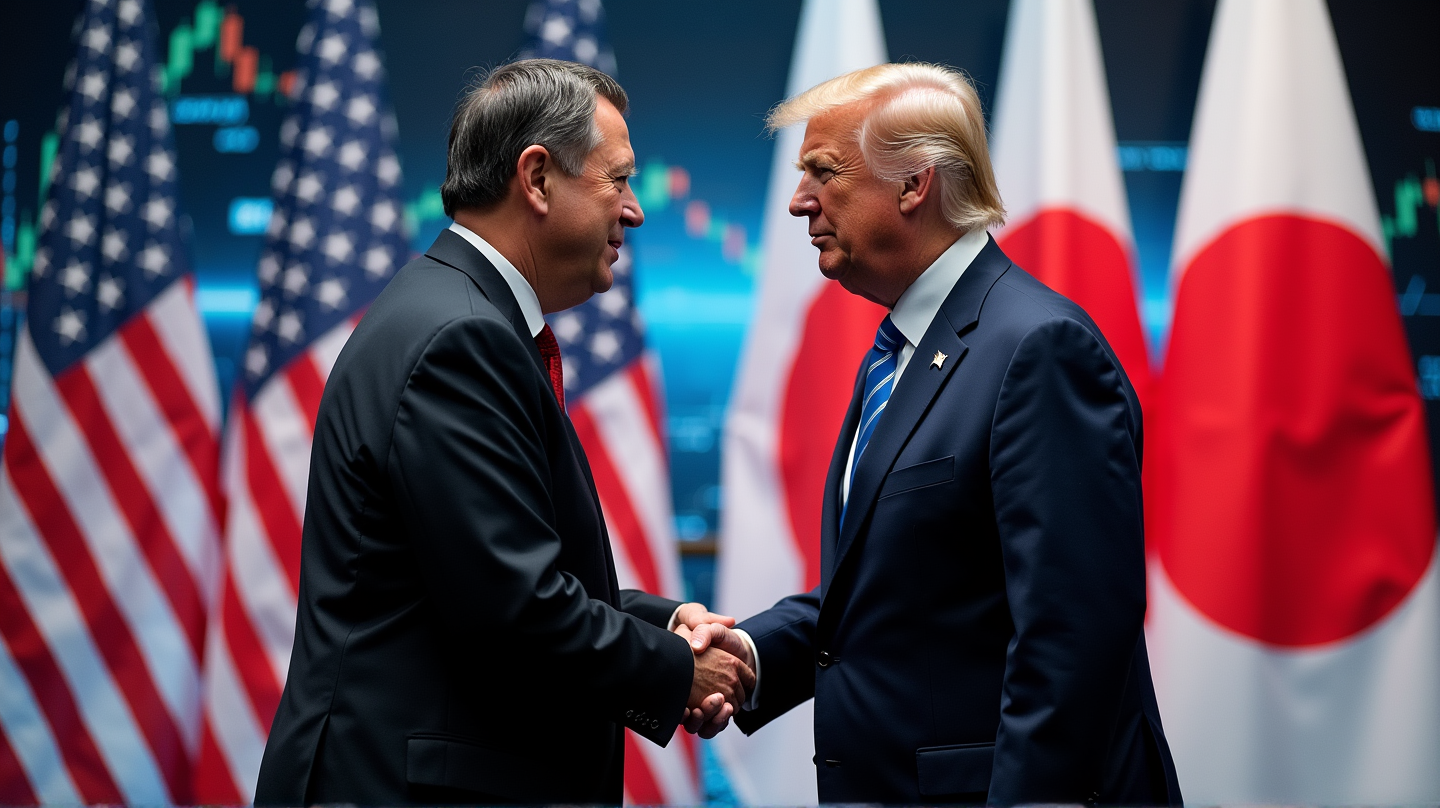In a significant geopolitical and economic development, the United States and Japan have finalized a landmark trade agreement, signaling a pivotal shift in international commerce and diplomatic relations. This monumental accord, announced by former President Donald Trump, follows an intense period of high-stakes discussions that captivated global financial markets and policy observers alike.
The comprehensive nature of this newly forged alliance is underscored by its potential to redefine the economic interplay between two of the world’s most influential nations. Dubbed by some as an unprecedented achievement in bilateral negotiations, the agreement details specific commitments designed to foster mutual prosperity and strategic alignment.
Central to this groundbreaking pact is Japan’s substantial financial commitment to the American economy. The agreement outlines a colossal investment of $550 billion from Japan into the United States, an initiative poised to inject significant capital and stimulate growth across various sectors. Notably, Japan is anticipated to reap a substantial 90% of the profits generated from this extensive financial engagement.
This strategic investment is projected to yield considerable benefits for the American workforce, directly addressing concerns regarding domestic employment. Forecasts suggest the creation of hundreds of thousands of new jobs, particularly within the automotive, rice, and broader agricultural export industries, solidifying the deal’s appeal as a significant economic stimulus.
While the agreement celebrates a reduction in US tariffs on Japanese automobiles, decreasing from 25 percent to a more favorable 15 percent, certain complex issues remain on the negotiating table. The contentious 50 percent duties on aluminum and steel imports, for instance, have yet to find a resolution, highlighting persistent challenges within the broader trade landscape.
Despite these lingering points of contention, expert analysis suggests a positive trajectory. William Chou, Deputy Director of the Japan Chair at the Hudson Institute, characterized the 15 percent automotive tariff rate as “relatively good news” for Japan, acknowledging the pragmatic concessions made. Similarly, Brian Jacobsen, chief economist at Annex Wealth Management, observed that the willingness to accept a 15 percent tariff as ‘relief’ reflects the evolving, often demanding, nature of contemporary global trade negotiations.
This particular agreement holds notable significance within the portfolio of trade deals negotiated during the Trump administration. Following prior engagements with nations such as the United Kingdom, Indonesia, Vietnam, and the Philippines, along with a crucial trade truce with China, this accord with Japan stands out for its sheer scale and potential long-term implications for global trade balances.
As Japanese Prime Minister Shigeru Ishiba continues to navigate the intricacies of safeguarding Japan’s national interests amidst shifting global political currents, this trade deal represents a promising yet undeniably complex chapter in the enduring relationship between the United States and Japan, setting a precedent for future international economic cooperation and competition.






Leave a Reply